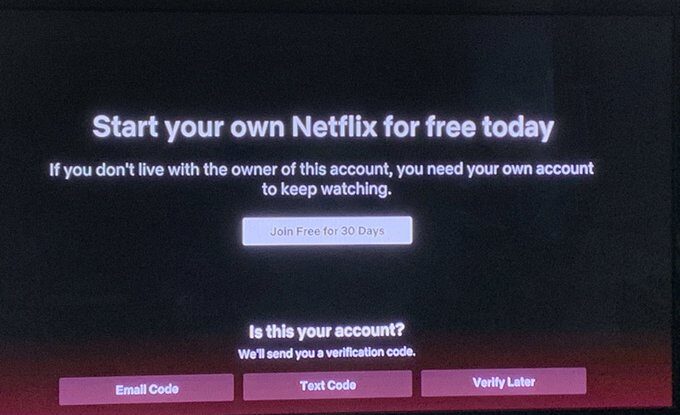Is there a risk in Netflix deleting shared accounts?

Much has been said recently about the company's latest statements regarding shared accounts. In particular, whether it is possible for Netflix to be able to delete a person's account, just for sharing it.
The problem is not so much in sharing it, because technically it is to enjoy together with your family, under the same roof. The conflicts of the company come when this feature is used so that third parties take advantage of it.
What Netflix said about account sharing
Previously, in March 2021, Netflix hinted that it is aware of people sharing their accounts to people who are not in their household.
And it is that, basically, the multiple screens, a feature of the service, are for the different members of a family.
In a nutshell, Netflix said that if you don't live with the owner of the person paying the bill, then you'll need to purchase the services on your own. Everything, with the aim that you can continue enjoying the extensive catalog offered by the streaming platform.

So what's the problem with account sharing?
While we have the good faith to share a Netflix account with a friend or whoever, there are some risks.
The main problem that may exist will depend on the number of screens that the person paying the bill has purchased.
In this sense, there is a high probability that the person we lend our user will in turn do the same to someone else.
As a result, we have a chain of people who constantly use the same account, reaching the limit allowed by the purchased plan.
It is here, where the owner of it is directly affected. That is, will you pay the bill and not be able to enjoy the content?
Also, there is the problem of passwords or any other related situation. Ultimately, the only person responsible will be the owner of the account, that is, the person who pays for it and has their data registered with Netflix.
Well, in the end, there is also the risk that one of the people to whom the password is shared may be able to change it.
In this case, it would be very difficult to present your case to Netflix support, considering that you incur one of their policies.
Why does Netflix not like this practice?
In principle, because its service is basically aimed at families and not to be marketed through other practices.
Thus, explicit reference is made to those people who "sell" Netflix accounts for those who are not able to acquire them on their own. The latter, perhaps, due to not having any of the payment methods available to the company for the acquisition of its services.
Therefore, the people who are in the business of selling the screens of a Netflix account could have a large network of customers. In this way, they would be recovering their investment in the acquisition of the profile in addition to a profit for the service.
That is, a person acquires a profile of 4 Netflix screens that, according to the official page, has an approximate value of USD 13.99.
Later, he could sell each screen for more than USD 3.5 just with the aim of recouping his investment and making a profit. This is a practice that Netflix is aware of, especially in recent years, and that it would seek to avoid. Even in its list of terms and conditions, point 4.2, it highlights:
“The Netflix service and all content accessed on it are for personal, non-commercial use only and should not be shared with anyone other than members of your household. During your Netflix membership, we grant you a limited, non-exclusive, non-transferable right to access the Netflix service and content. Beyond this, no other right, title or interest will be transferred to you. You agree that you will not use the service for public presentations.”
What would Netflix's measures be in this regard?
For now, there is no official statement from the company regarding this practice. In other words, they were just empty threats about removing your Netflix account.
However, you should be aware of the different risks that exist in the practice of sharing your password. Or, alternatively, use the Netflix service as a way to generate income for yourself.
